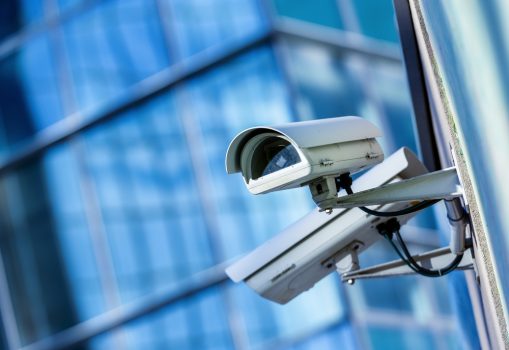In Gilleran v. Township of Bloomfield, the Supreme Court of New Jersey held that security footage from a camera located outside a town hall was not subject to disclosure under the Open Public Records Act (OPRA). According to the state’s highest court, “Compelling release on demand of security surveillance video would be contrary to the legislative intent motivating OPRA’s exemptions based on security concerns.”
The Facts of the Case
Plaintiff Patricia Gilleran requested one day of video footage from a security camera attached to the Bloomfield Town Hall. The Township denied Gilleran’s request, citing OPRA’s security exceptions, which protect “emergency or security information or procedures for any buildings or facility which, if disclosed, would jeopardize security of the building or facility or persons therein,” as well as “security measures and surveillance techniques which, if disclosed, would create a risk to the safety of persons, property, electronic data or software.” Gilleran subsequently filed a complaint in the Law Division seeking the requested footage under OPRA and the common law right of access.
In the court proceedings that followed, she argued that the camera is in plain sight and captures video of a public area. She further contended that the videotape is a government record subject to access under OPRA and that the Township should either grant her request in full or review its tapes, redact any exempt portions, and release the remainder.
Meanwhile, the Township maintained that disclosing the footage could compromise the safety of visitors to the Law Enforcement Building adjacent to Town Hall, including confidential informants, witnesses, domestic violence victims, and members of the public who seek to report crimes. Bloomfield further argued that disclosure would jeopardize the security measures it has taken for Town Hall and its adjacent parking area and police building.
The Appellate Division upheld the trial court’s ruling that the Township had violated OPRA, holding that “Bloomfield did not satisfy its burden of proving the requested recordings are exempt from disclosure through the general statements of its Administrator and its argument for a blanket exemption.” In reaching its decision, the appeals court emphasized that the trial court held correctly that the statutory exclusions do not provide a blanket OPRA exemption for recordings made from security cameras. Instead, courts must make individual determinations based on the specific facts and legal arguments presented.
The Court’s Decision
The New Jersey Supreme Court reversed the Appellate Division’s decision. It remanded the case for further proceedings regarding the unresolved common law claim.
According to the majority, the requested videotape is not subject to public access under OPRA’s security exclusions and that the Township provided an adequate basis for finding the footage to be exempt from release. As Justice Jaynee LaVecchia explained, “it takes no stretch of the imagination to realize that [releasing security footage on demand] would make it possible for any person to gather the information necessary to dismantle the protection provided by such security systems.”
The Court agreed with Gilleran that the two exceptions do not create a blanket exemption for any and all information about security measures. Rather, it established the following flexible test:
To achieve exemption for such a category of security information, the governmental entity must establish that the security tool (here, the camera) produces information that, if disclosed, would create a risk to the security of the building or the persons therein because of the revealing nature of the product of that tool.
In this case, the Court held that because the “[t]ownship seeks to protect information about the camera itself, including the scope of the camera’s surveillance area, the clarity of the images the camera captures, and the frequency with which it captures images…OPRA’s security exemptions bar access to a security system’s surveillance product.”
The Court further held that requests for videotape security footage from cameras protecting public facilities are better analyzed under the common law right of access “where the asserted need for access can be weighed against the needs of governmental confidentiality.”
Chief Justice Stuart Rabner dissented. He wrote, “The Legislature could have written [a blanket security footage exemption] standard into the law but did not.”
For more information about the OPRA case or the legal issues involved, we encourage you to contact a member of Scarinci Hollenbeck’s Government Law Group.

